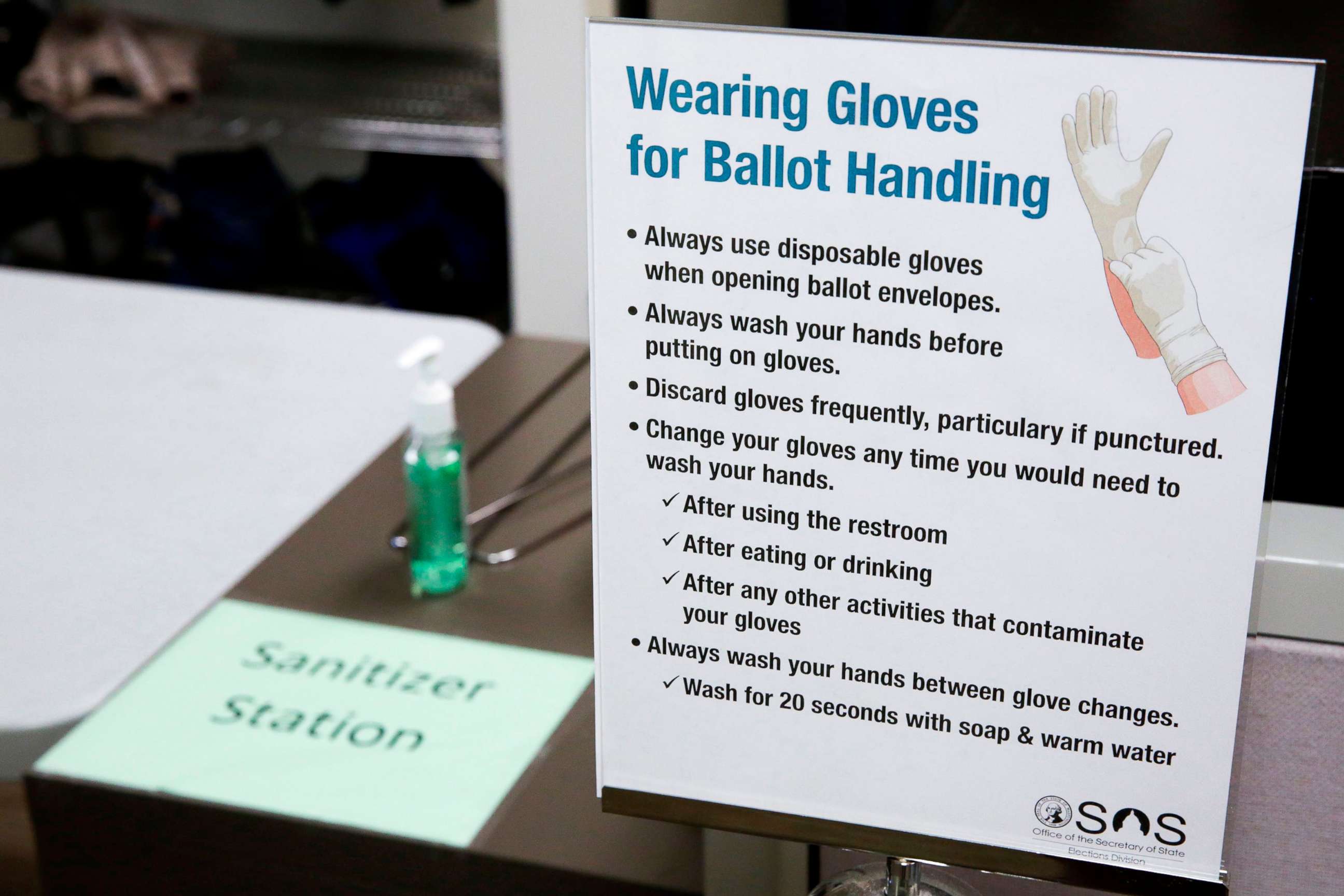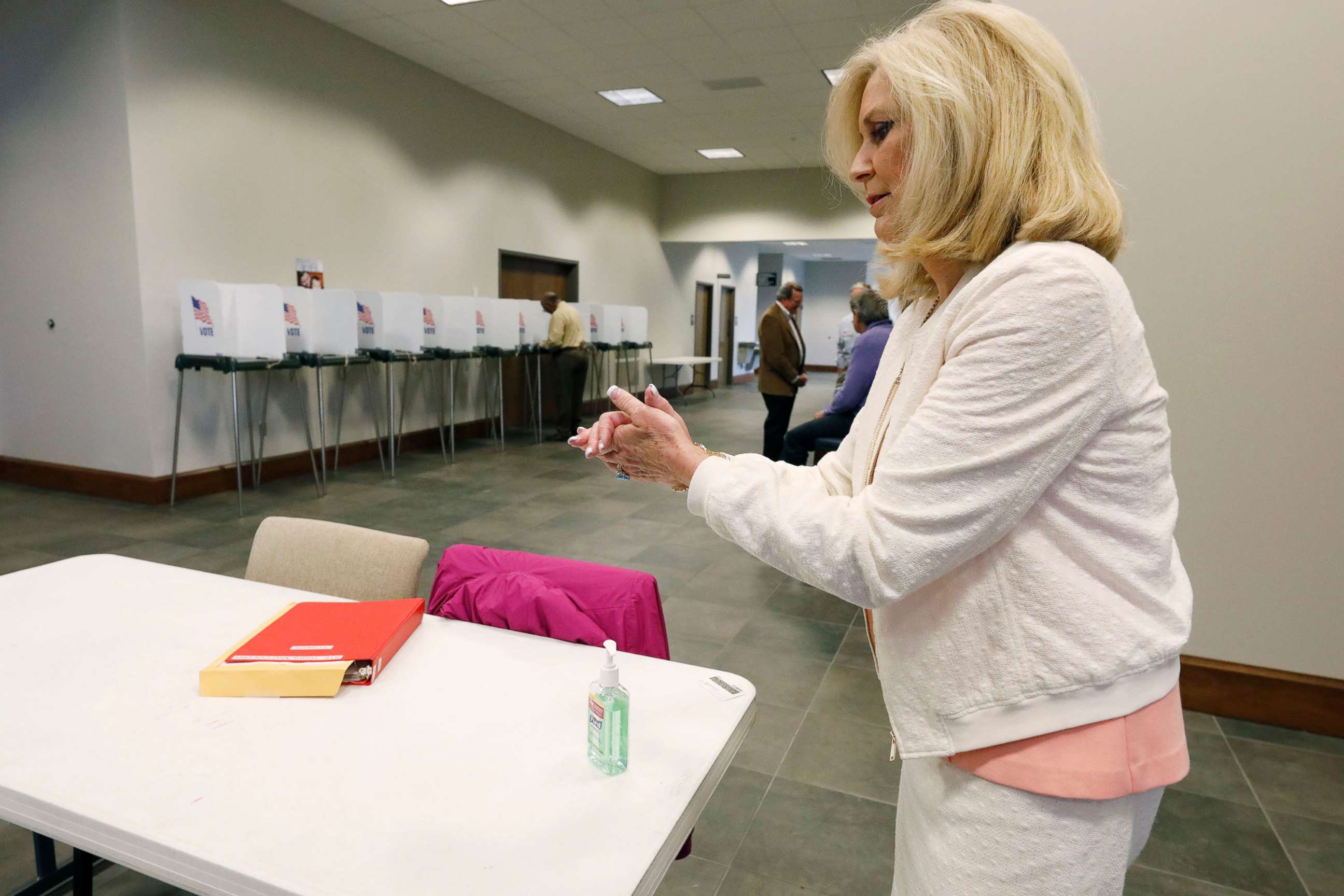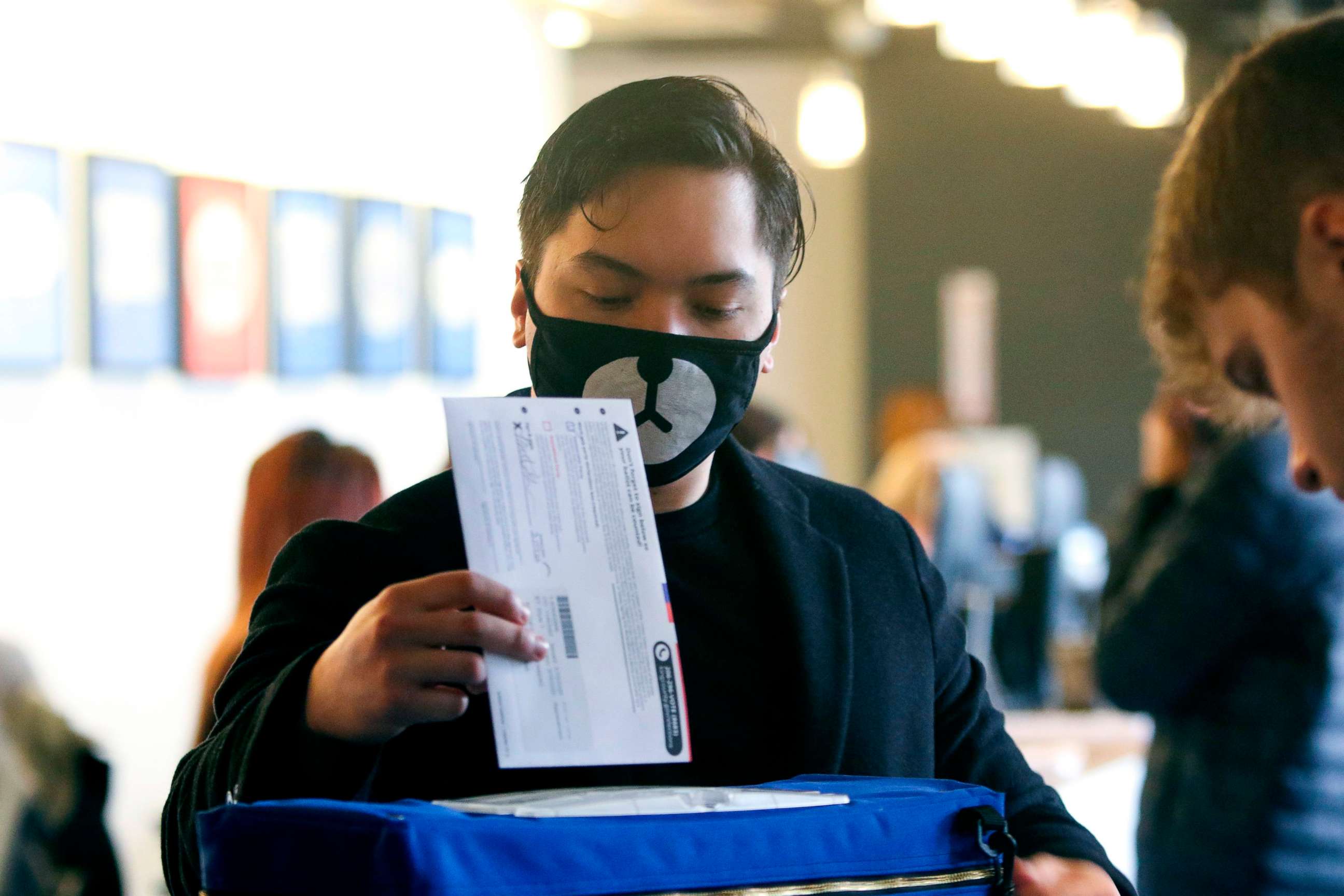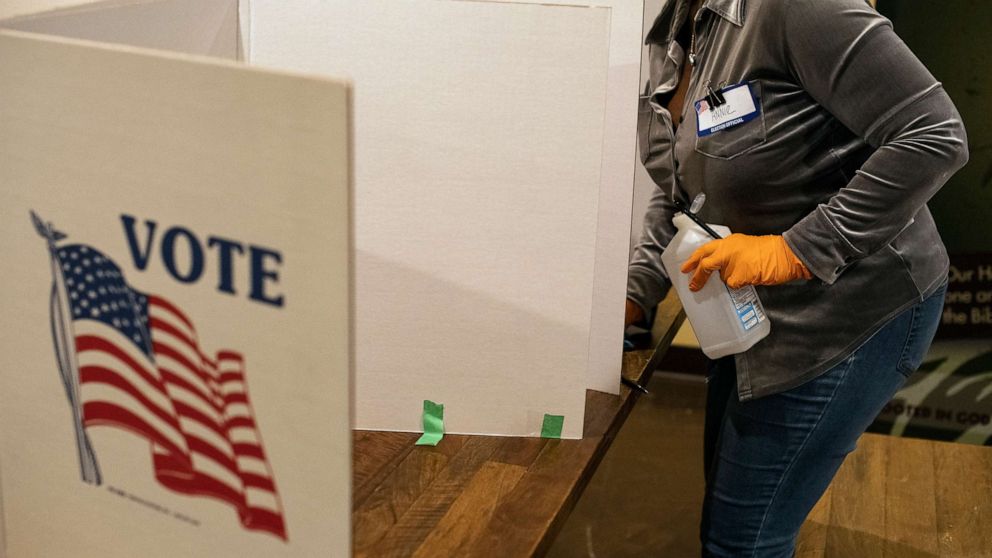Polling places moved from nursing homes; other changes amid coronavirus concerns
Local election officials are stocking up on rubber gloves and hand sanitizer, moving polling places away from nursing homes and encouraging early and mail-in voting to combat the growing coronavirus crisis in the middle of an election year.
On Friday, Louisiana became the first state to postpone an election because of coronavirus, moving its presidential primary from April 4th to the end of June “out of an abundance of caution,” Secretary of State Kyle Ardoin announced.
In Florida, Ohio, Illinois and Arizona, primaries are still scheduled to take place next Tuesday as officials and campaigns are scrambling to adjust their plans to protect voters’ health and the electoral process under unprecedented circumstances.
“As far as I can recall, this is the first time we've had an event that really goes coast to coast and therefore, you could have effects all over the country,” Michael Chertoff, who served as secretary of Homeland Security under President George W. Bush, told ABC News.
On Friday, top election officials in the four states said they would move forward with the primaries, working closely with federal and state health officials.
“Americans have participated in elections during challenging times in the past, and based on the best information we have from public health officials, we are confident that voters in our states can safely and securely cast their ballots in this election, and that otherwise healthy poll workers can and should carry out their patriotic duties on Tuesday,” they said in a statement.
Moving polling places
Logistically, election officials have scrambled to relocate dozens polling places out of senior homes and away from vulnerable populations, taking steps to notify voters where they can and reduce health risks for elderly voters where they haven’t been able to move operations.
In Ohio, which is in a state of emergency, Secretary of State Frank LaRose ordered counties to relocate voting locations away from senior living areas, moving more than 150 polling places as of Friday.
“We’ve been working on and thinking about this for several weeks now,” he said, noting that his office is maintaining a website listing all the relocated polling places and new coronavirus updates.

The same is happening in Florida, in key counties with large senior populations.
“It’s really a safety issue in our nursing homes and assisted living facilities,” Craig Latimer, the director of Board of Elections in Hillsborough County, which includes Tampa, told ABC News.
In Broward County, Florida, a key swing region with a large population of seniors, officials have moved at least five voting locations, according to Steve Vancore, a spokesman for the Broward County Board of Elections.
“We drop everyone a postcard saying their precinct has been temporarily relocated,” he said. “If they show up at, say, the senior center, there will be a sign saying ‘Your precinct has moved.’”
Florida state election officials have not responded questions about how many polling places will be moved across the Sunshine State, but the changes could impact turnout on Election Day.
“Some people aren't going to be able to find the polls and they're going to drive to--- where they usually vote, and it's not open and they'll just say, 'Forget it,'” Martinez, the University of Florida political scientist, told ABC News.
The situation in many communities is changing minute-by-minute: In Lake County, Illinois, Robin O'Connor, the country clerk told ABC News on Thursday that no polling places had been moved.
By Friday, O'Connor said her office was working to relocate polling sites from local senior centers after receiving a number of requests to do so.
Mail-in and early voting
Officials are encouraging more early voting and voting-by-mail to help people avoid long lines at their polling places on Tuesday. Arizona, Florida, Illinois and Ohio are among the 39 states with early voting laws, according to the National Conference of State Legislature.
While early voting ends in Arizona on the Friday before the election, Illinois residents have until close-of-business Monday to vote early.
At least 21 states allow voting-by-mail for some elections, while Colorado, Oregon and Washington have all-mail voting.
Matt Dietrich, a spokesman for the Illinois State Board of Elections, told ABC News that the number of people voting by mail in the state is “way ahead” of the numbers in the 2016 presidential primary: While 119,000 votes were cast by mail four years ago, Illinois sent out roughly 231,000 mail-in ballots to voters this year.
It’s not yet clear to local officials and election experts whether the growing number of early and mail-in voting is a result of voters’ preferences, or fears about the spread of coronavirus.
"The effect is dampened in Florida, primarily because of the prevalence of early voting and vote-by-mail, because those two things became popular," Dr. Michael Martinez, a professor at University of Florida who specializes in voter participation, told ABC News.

As of Friday morning, 860,572 Democrats had returned their mail-in ballots or voted early, compared to 2016's total of 889,070, which was roughly 52 percent of the ballots cast four years ago.
Recruiting more volunteers
State and local election officials are concerned about having enough workers at polling locations around the country next week, worried that volunteers, who tend to be older, will drop out with concerns about the coronavirus.
In Ohio, more than 500 people have signed up online to volunteer at polling places, to replace a number of workers who have backed out.
“Some poll workers have decided they don’t want to work on Tuesday, a small number, so we’re making sure we’re prepared,” LaRose, Ohio’s secretary of state, told ABC News in an interview Thursday.
In Maricopa County, Arizona, the state’s largest county and home to Phoenix, election officials have hired a surplus of workers in anticipation of last-minute shortages, Megan Gilbertson, a spokeswoman for the Maricopa County Elections Department, told ABC News.
“We have hired more than what’s required to operate our polling locations, we can and always do hire extra poll workers for our locations, so we are taking this day by day and assessing as things change,” she said.
The county has also put in place drop-boxes for mail-in ballots, in an effort to minimize in-person contact between voters at polling sites. Gilbertson said.
Following health guidelines
Officials across the states are circulating polling location-specific guidance from the Centers for Disease Control, encouraging volunteers and workers to stock up on cleaning supplies and offering to reimburse them for any extra equipment they need to purchase.
Broward County poll workers will be equipped with rubber gloves, and equipment to wipe voting machines after each use, according to the county spokesman.
Outside Chicago, voters are being encouraged to bring their own pens to their voting locations.
“We began to think that would be a very comforting process for many voters,” Robin O’Connor, the Lake County clerk, told ABC News. “We’re always preparing for unusual situations but I have to say, this was a first.”

Some areas are taking steps to limit in-person contacts between poll workers and voters.
In the Phoenix area, polling locations have drop boxes for mail-in ballots, in an effort to limit person-to-person contact.
In Chicago and Cook County, Illinois, officials are seeking court orders to allow paper ballots to be used for voting in nursing homes, rather than having election judges and poll watchers visit facilities to help with voting as they normally would.




